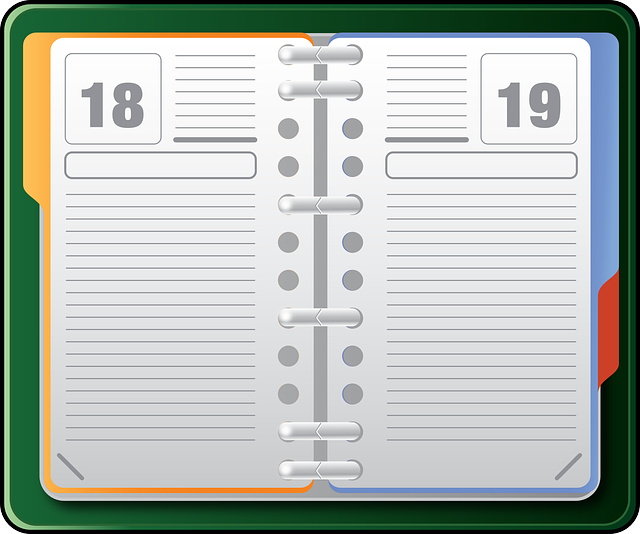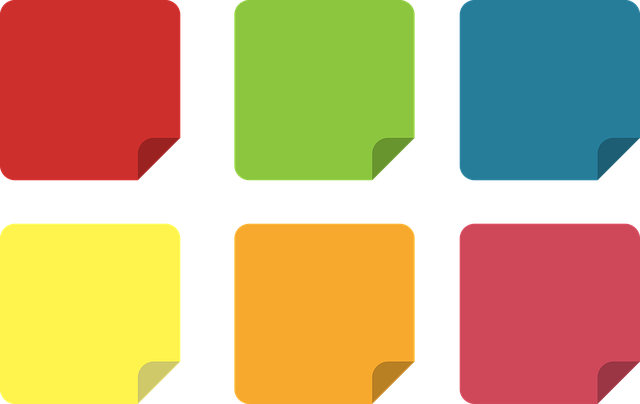“You should keep a journal!”, “Use that calendar on your phone!”, “Buy sticky notes!”
These might be some of the suggestions you’ve been given for your time management woes. It's important to keep track of your tasks and obligations, but that's often easier said than done. Read on to figure out what method will work best for you and begin maximising your valuable time with these time management tips – you will thank yourself soon!
Diary

This is a physical book, sometimes also called a portfolio or planner, with an entry for each day of the year allowing you to pen in important events, assignment due dates, and more. Many also contain other useful sections, like tables to track your money for the month. They come in many designs and sizes and are useful if you’re someone who likes physical copies of things like books and notes. They can also be great for nostalgia, as once the year is over, you can easily flip through your diary and reminisce on whatever you were doing on any particular day.
The main drawback of the diary is that it takes a reasonable amount of effort to maintain. You likely won’t have your diary on you 24/7, so if a particular task arises while away from your diary, you have to remember to write it in. Otherwise, it can be easy to fall behind in keeping track of your time, and things can get overwhelming quickly. Also, make sure not to lose it! You might consider combining the diary with other methods to protect your planning just in case. Still, the diary is a great option, and as long as you're able to put a little effort into it, your diary will repay you generously with success and peace of mind, and become a historical souvenir.
Virtual Calendar

This is simply a calendar app on your phone and/or computer. If you’re not a fan of the time management apps shipped with your device, there are other options, like Google Calendar or Fantastical. This method is very convenient, as you'll likely always have a device nearby, so you can quickly pop into new events and check what's coming up. Many apps will also provide notifications and can be synced across your phone and computer, making it even easier to stay on top of things, from tutoring sessions to weekend hangouts and everything in between. Like the diary, these come in many designs, and you can personalise your calendar to create a time management tool you’ll look forward to using.
The nature of digital calendars comes with the small risk of data breaches, so if you are hot on your cybersecurity, you may wish to look for a calendar with security like two-step verification or avoid this method entirely. Furthermore, if you already spend a lot of time on screens as many of us do, then you can always consider a physical diary to avoid adding to your screen time. Ultimately, virtual calendars are highly convenient and useful for saving time. As long as you remain aware of the potential risks, they are fantastic time management tools.
Sticky Notes and To-Do Lists

Jotting down tasks on sticky notes or to-do lists can be quite effective. It allows you to take note of tasks very quickly, and you can put these notes in places you'll often look like on your desk to ensure you will not forget them. They also allow you to enjoy the tactile writing sensation like the diary, but without the additional effort required.
Be aware, though, that sticky notes and to-do lists don’t allow for long-term planning. And, if you don’t complete certain tasks on the notes quickly enough, you may find them piling up all over your desk which can make you overwhelmed and lose focus. Therefore, these are often best used in conjunction with other methods like calendars or diaries: you can use those for long-term planning, and use sticky notes and to-do lists for urgent tasks that require immediate attention to get the best of both worlds!
Nothing at all?
Perhaps you just keep it all in your head, not writing your important tasks anywhere. Even if you’re able to get away with this now, it’s an unnecessary risk, especially as your obligations grow in those senior years of school. Not only are you likely to forget things, but storing all this in your memory takes up mental energy that is better spent on learning and doing things you enjoy. Writing down your tasks somewhere also helps you to visualise them more easily and allows you to plan around them better. Even a simple 5-minute to-do list will free you up immensely and help you to solve time problems better than ever before, allowing you to maximise that brain power of yours and get things done!
FAQs
Which method is best for me?
That depends on many factors. If you like the sensation of writing you might be drawn to those physical methods, or if you want quick access then maybe you’d like virtual calendars. If you’re unsure, the easiest way to figure this out is to just try each method for a little while. You should quickly get a feel for how each works for you, and be able to select your favourite.
Will adopting one of these methods reduce my stress?
Absolutely! Whichever method you use, they will all allow you to visualise your tasks and time better, freeing up your mental energy to do other things. They will also improve your feelings of satisfaction and completion as you work through each entry and smash out one task after another.
Will using one of these methods improve my grades?
Probably! While we shouldn’t make any guarantees, these will likely improve your ability to produce quality work and boost your productivity. You will feel more confident and on top of things, which will flow into your schoolwork. Also, you'll be able to complete tasks more quickly and hit those deadlines as you'll be able to see when assignments and tests are due and plan accordingly. Go for it!
Written by Layne Bailey, a passionate SACE Tutor for Psychology, English, Modern History, and more. He is currently studying a Bachelor of Psychology (Advanced) (Honours) at the University of Adelaide. Learn more about him and request him as a tutor here.






